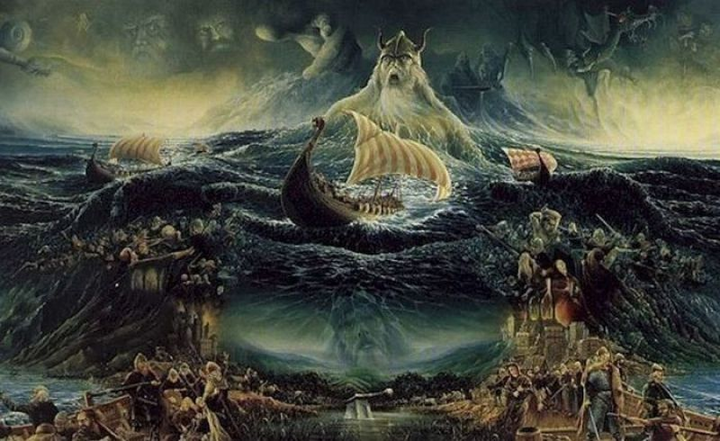To ensure the necessary environmental safety in the selection and development of effective technology development of offshore oil and gas locations of the Caspian Sea is one of the tasks super cedes the oil and gas industry of Kazakhstan. The relevance of its substantiated by the fact that the northern (Kazakhstan), part of the Caspian Sea and its coast — the environmentally sensitive conservation area.
To solve these and other problems of environmental protection in the development of oil and gas fields is required environmental monitoring.
The objectives of the monitoring is continuous monitoring and tracking of local and large-scale changes in the concentration of pollutants in the atmosphere, soil and water to build short-term and long-term forecasts, the impact of technological emissions ecosystem stability. As well as for the development of activities containing conserve monitoring can be characterized by the tasks, including monitoring, control, prognosis, which are the regular system in space and time.
The results of hydro chemical studies indicate that the main threat to the northern part of the Caspian Sea are phenols content in the sea water reaches fairly high levels (up to 18 MAC).
In addition, the high level of mercury contamination was detected during the period of research in the northern part of the Caspian Sea. This fact necessitates constant monitoring, that is, of the economic monitoring pollution of the Caspian Sea by mercury and other toxic elements.
Given the ubiquity of metals and chlorinated hydrocarbons in the northern part of the sea, it is believed that in combination with other pollutants, they may be the obvious danger to fish and other marine organisms. With regard to oil pollution, it still has only a local distribution in parts of the waters. The problem of oil pollution in the Kazakhstan sector of the Caspian Sea has grown considerably due to the intense sea-level rise and the upcoming start of the industrial development of offshore oil and gas fields.
The danger is also present and conserved in the open sea well. Here are possible manifestations of oil and gas because of violations under the influence of seawater operational and technical columns. The main sources of water pollution are the oil refinery, oil depot and oil station. They supply to water pollutants such as phenol, petroleum, copper, manganese, chromium and zinc, the contents of which consistently exceeds MPC several times. The high concentration of work conducted in the conservation area of the Caspian Sea (Kazakhstan sector) creates an increased burden on the environment. It will take some time to highlight the environmental impact of such load and plans for further refinement of oil operations at sea. There is enough reasoned opinion that to obtain objective data on the results of the impact on the environment of the first phase of drilling, the naval of petroleum operations in this part of the sea should not have intensive development.
The high concentration of work conducted in the conservation area of the Caspian Sea (Kazakhstan sector) creates an increased burden on the environment. It will take some time to highlight the environmental impact of such load and plans for further refinement of oil operations at sea. There is enough reasoned opinion that to obtain objective data on the results of the impact on the environment of the first phase of drilling, the naval of petroleum operations in this part of the sea should not have intensive development.
World experience of the expedition offshore oil and gas show that, subject to the development of continuous improvement of production technology, scientific support for environmental issues it is possible to observe the optimum production safety, rational use of nature, protection of the environment and public health.
The Caspian Sea is 424 thousand square kilometers and continues to expand. His level is 27 meters below sea level, but over the last 15 years, it rose by 2.4 meters. In addition, the water of the Caspian Sea is much less salty than other seas. It allows making the assumption that the Caspian Sea should not be considered in the full sense of the word. On what the legal status of the Caspian Sea will depend on territorial Democrats Caspian Sea among the littoral states: Russia, Kazakhstan, Turkmenistan, Iran and Azerbaijan. Rates are steadily increasing in the race to participate in the development of hydrocarbon resources of the Caspian Sea. And nowhere they did not reach such high levels as in the newly independent which have gained Caspian republics. Bound outdated Soviet transport infrastructure, they cannot take advantage of the full measure of their wealth, which would significantly improve the prospects for economic development, and have no other routes of delivery to foreign markets other than through Russia. Russia is not yet shuns mixing politics with the economy, when it comes to cooperation with the previously subordinate to it by States. She is aware that any weakening of economic ties will lead to the loss of its political influence in the area, which, in turn, will bring the Russian economic damage. Caspian oil and gas represent a very serious competitive threat to Russia. Proven oil reserves in Kazakhstan and Azerbaijan are only a tiny part of their real resources. It is believed that the true potential of Kazakhstan in the 15 times greater than the proven reserves of 5.3 billion barrels.
The giant Tengiz field in the seaside developed by Chevron in partnership with Mobil and Lukoil contains about 9.6 billion barrels. Oil and gas field in western Kazakhstan Karachanak near the border with Russia, which is working on British Gas, Agip, Lukoil and Tehako estimated at about 5 billion barrels of oil in the translation. But all this «seeds» compared with an incredibly rich Kashagan oil field, which is a continuation of the Tengiz under the Caspian waters — there can be hidden from 25 to 50 billion barrels.
Although about the whole Caspian fever say how about some oil Eldorado, would do well to take note of a couple of important facts. Each of these countries has proven reserves of 90 to 110 billion barrels, but they all left far behind in this respect, Saudi Arabia, she, according to the BP Statistical Review in 1996 was 261 billion barrels of proven reserves.
This sets the value of the Caspian oil and its expected role in the 10 times the proven and existing industrial and transportation infrastructure, barely meets the needs of today’s production.
The Caspian oil will never replace the Middle East in the long term, but nevertheless its strategic significance is far more important than its volume. First of all, from the point of view of the market outlook, it is in the same part of the globe as the Middle East, but fortunately, this area is not as flammable politically.
Therefore, for the United States, seeking to ensure global interests, it is extremely necessary to keep control of Caspian oil. Also, it is extremely important for Russia and for the regional superpower, and given the threat of emerging competition. It is naturally important for the whole of multistate states that emerged from the Caspian Sea to the collapse of the Soviet Union, primarily for Kazakhstan, Azerbaijan and Turkmenistan, but also for Georgia and Armenia, Uzbekistan, not to mention the Terrible.
Right behind them are the major regional neighbors, Turkey with its focus on building a community of Turkic States and Iran, whose regional plans are not less ambitious and whose feud with the United States is one of the most important factors that determine where in the end, will be laid pipeline routes.
Literature:
1. «Caspian shelg» № 3,1991.
2. «Steps for green» our environmental rights and their protection. Almaty 2001. edited by Polyakova.
3. Krasilov VA «Conservation: Principles, Problems and Priorities." 92 M.
4. VP «Environmental public rights in Kazakhstan," Almaty, 2000.
5. Law of the Republic of Kazakhstan. «On Environmental Protection». July 15, 1997, «Kazakhstan Today». March 21, 1997
S. Gilazheva, S. Rysmagambetova
ASU named after H. Dosmukhamedov, Atyrau,



